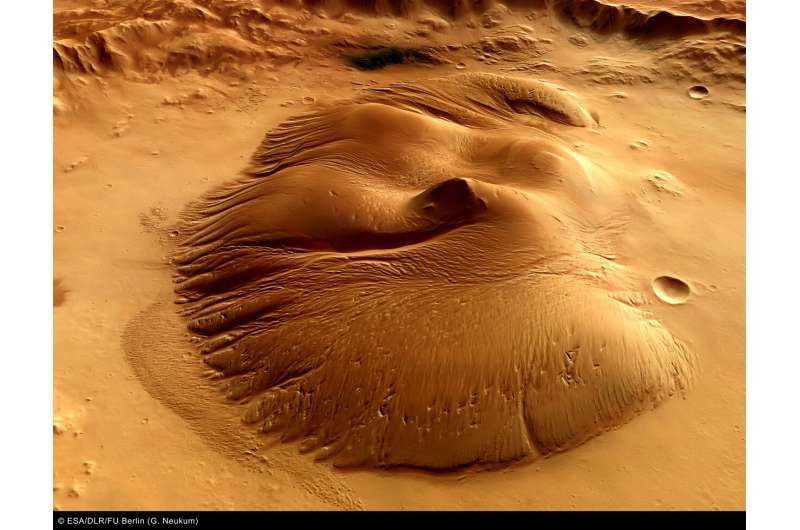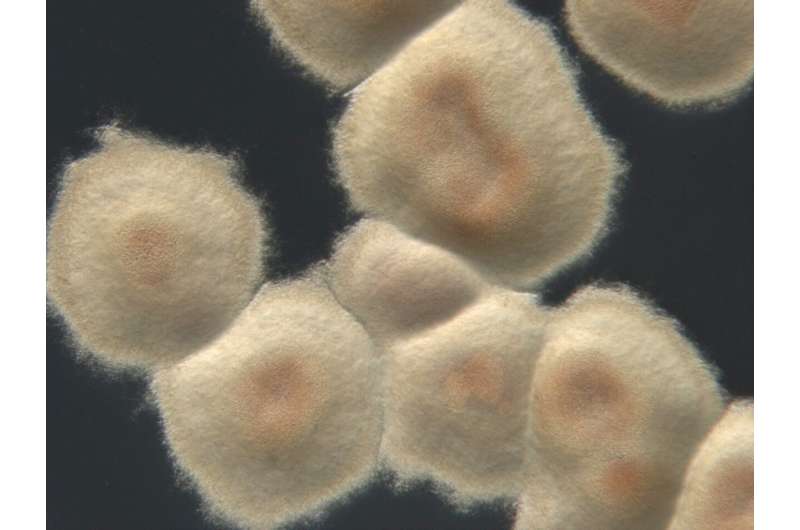Martian soil detox could lead to new medicines

Bacterial resistance to antibiotics is one of humankind's major long-term health challenges. Now research into helping humans live on Mars could help address this looming problem.
Dennis Claessen, associate professor at the Institute of Biology in Leiden University, the Netherlands works in synthetic biology, in which bacteria are engineered to solve problems that cannot be tackled – or are not tackled well – by 'wild' bacteria. A team of his students entered the iGEM International Genetically Engineered Machine competition with a solution to the problem of growing non-toxic plants on Mars, but needed 'Martian' gravity to test their ideas.
"The soil on Mars has perchlorate chemical compounds in it, which can be toxic for humans," explains Prof. Claessen. High doses of perchlorate can inhibit the thyroid gland's uptake of iodine and interfere with foetal development.
"Our students started 'building' a bacterium that would degrade the perchlorate to chlorine and oxygen, but they needed to know whether that bacterium would behave the same way in the partial gravity of Mars as it would on Earth."
The challenge was to find a way to reproduce Mars gravity on Earth, and the students solved it using a random positioning machine (RPM).
The first recorded experiment on living systems using machines to manipulate gravity was done in 1806 using a rotating waterwheel. Two hundred years later the RPM, designed by the Netherlands-based Airbus team for ESA, is the latest instrument developed to experiment in zero or reduced gravity without going into space.
As its name suggests, the RPM continually changes its orientation at random, so that items placed within it have no opportunity to adjust to a steady gravity direction. The original design could successfully simulate zero gravity while the newer RPM 2.0 can additionally simulate partial gravity, the stages between normal Earth gravity and the weightless environment.
"The RPM machines offer a great alternative to organisations looking to do experiments in zero and partial gravity," says Derk Schneemann at Verhaert Netherlands. Derk is the Dutch broker in the network of ESA Innovation Partners that facilitates the re-use of space technology in other sectors and which is part of ESA's Business Applications and Space Solutions Programme.
"During their experiments they noticed that when bacteria grew in partial gravity, they became stressed as they accumulated waste around them that they couldn't get rid of. This holds great potential because when microbes belonging to the Streptomyces family become stressed, they usually start making antibiotics.
"Seventy percent of all the antibiotics humans use are derived from Streptomyces bacteria and we know they have the potential to produce even more. Using the RPM to stress them in new ways may help us to find ones we've never seen before."

Detoxifying soil on Mars and Earth
Prof. Claessen is now building a Dutch consortium to investigate soil detoxification on a larger scale. This will have applications on Earth. For example, there is a lot of perchlorate in Chile's Atacama Desert, where the soil is believed to resemble that on Mars. Atacama soil was previously used as fertiliser in the US, but later it was found that perchlorate had been washed from this fertiliser into groundwater used for drinking.
Once the Dutch team is in place and has funding, research into Streptomyces microbes (which are naturally found in Earth's soil, where they play a vital role in breaking down organic matter) and antibiotics could also be done with the RPM.
"To find that they hold the potential for discovering new antibiotics as well is even more exciting, as antibiotic resistance is something we need to tackle urgently," adds Derk Schneemann.
Space for health
The United Nations World Health Organization marks World Health Day on 7 April every year. The third Sustainable Development Goal underlines the right to health: Ensure healthy lives and promote well-being for all at all ages. On-orbit research, space technology and space applications can help improve health on Earth by monitoring our environment, helping track disease, improving diagnostics, and working on new medicines among other things. The UN is also focusing particularly this year on universal health coverage.
Provided by European Space Agency





















